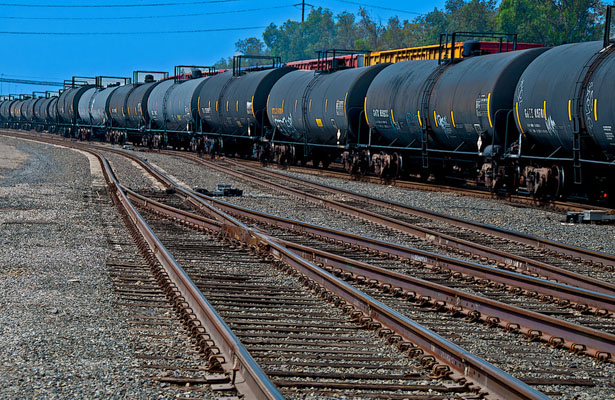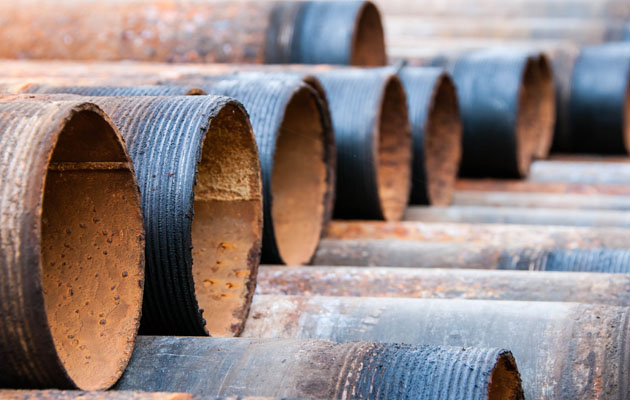US refineries on the Gulf that had been anticipating a boom from Canada’s Alberta tar sands via the planned Keystone XL pipeline are becoming apathetic about the mired pipeline’s future, according to Wednesday’s Wall Street Journal. As the domestic US oil boom has kept refineries busy and rail and new pipelines have filled the shipping gap that Keystone would have filled, the refineries on the Gulf that had been waiting to process the Canadian heavy crude “increasingly doubt that the controversial Keystone XL pipeline expansion will ever be built” and “don’t particularly care.” But does that mean that the 830,000 barrels of heavy crude that would have streamed through the XL pipeline have become irrelevant? Not quite. The pipeline is still the best hope for Canadian tar sands to make it to refineries. Without it, Alberta’s surging industry might find itself choked with no way to move all the oil it produces.
According to the Wall Street Journal:
Railroads are carrying soaring amounts of crude from Canada down to refineries along the U.S. Gulf Coast, reducing the need for the TransCanada Corp. project, which is still awaiting approval from the U.S. government after two years of delays.
Meanwhile, a rival pipeline company, Enbridge Inc., is expanding existing pipes to carry Canadian crude south—and it doesn’t need federal permission because it’s using existing pipeline rights of way. In addition, so much oil is sloshing around the U.S. from its own wells that refiners don’t need lots more heavy crude from the north to keep busy.
“Keystone XL has been back-burnered for so long that any relevant parties have been able to make plans as though the project never even existed in the first place,” says Sam Margolin, an analyst at Cowen & Co.
The domestic oil boom from sources like North Dakota’s Bakken region and the sudden glut of tar sands oil coming out of Alberta have overwhelmed existing pipelines, creating bottlenecks and forcing oil companies to find other ways to move oil from wells to refineries. Between 2011 and 2012, shipments to refineries by truck rose by 38 percent, barge transport increased by 53 percent, and rail shipments quadrupled.
The hitch is that Canada is still staring down a massive planned increase in tar sands production—and without Keystone XL being built, it might not be able to move the oil out of Alberta fast enough to keep pace with production. Canadian tar sands produced 1.8 million barrels per day in 2012, and are hoping to crank that up to about 5 million per day by 2030. In fact, Alberta could pass that milestone as soon as 2016.






